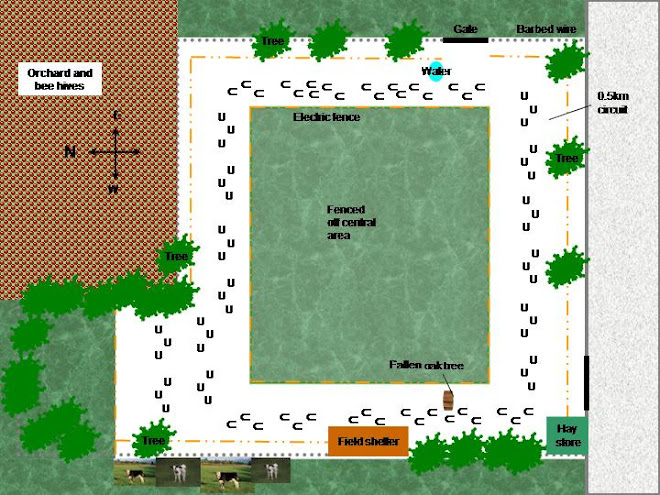For those of you that don't know me - I'm pretty ancient. Not pre war, I just feel like it, but older than the current UK Prime Minister and that is just plain wrong........
In my day (insert much tooth sucking and huffing and puffing), all kids had a reasonable grounding in science, math and general logical thinking at least until the age of 13. I don't know how it goes now, but 'general science' doesn't seem to cut the mustard in the same way as studying the sciences separately.
Well the proof is in the pudding perhaps, and it is sad to see a general trend for folks not to question published material, digital or print. But we should and we must apply a healthy dose of scepticism and logic to everything we read.
Take for example sugar beet. An innocent enough vegetable, but one that can be very devisive. Maybe not as devisive as Maggie Thatcher, God rest, but I loved her for her honesty and I love sugar beet too. So my cards are on the table, I am pro sugar beet. But don't let my opinions sway you. Be logical, look at the data. Don't be swayed by hysteria either, and there is a shed load of that on the internet these days.
In examining sugar beet you need to separate your data by country, as each has their own regulation regarding how food stuffs are grown and handled. And this is where the first set of errors creeps in. For example in the US much if not all sugar beet is GM. In the UK the percentage of GM sugar beet is 0. That is right, nada, none, zero, because GM sugar beet is not accepted by the sugar processing industry in the UK. It is a very tightly controlled industry, I was actually slightly horrified because it is pretty much a closed shop. A bit like the unions dear Maggie wasn't so keen on.
So in the UK we realise we have to look at UK data not US. If you can be bothered, and once, when I was a bit younger I was, you will phone up producers, suppliers, nutritionists, scientists and so forth. You will get hold of EU legislation and information on pesticides etc. Having done all this you may find there are two factors at work that make the idea that beet pulp is 'laden with toxins' an 'interesting' idea.
The two factors are science and money. And never underestimate the power of money (sad but true). I've often found the way to influence an apparently intractable person was to point out the bottom line benefits. So for the science, the noxious chemicals and yes I accept that chemicals are noxious, are so low that they are pretty much beyond detection in beet pulp. I say 'pretty much' because no doubt there is batch out there where they found some. For the money, these noxious chemicals are so expensive that farmers, mindful of the bottom line, work extremely hard to minimise their use. Which makes a nonsense of the idea that these things are liberally sloshed around like so much pond water with neither due care nor consideration. I don't doubt that some farmers are careless, but the sugar industry tests each batch of beets and won't accept anything which is going to interfere with production or the end product.
But don't get drawn into the rhetoric, hype or hysteria. If you are worried by the products you feed your horse, do the work. Understand how your horse's digestive system functions, appreciate the beauty of hind gut fermentation and what is required to keep it afloat. Call your suppliers, get the data. And observe your horse.
For what is one man's meat is anothers poison. I do respect Kellon and the work she has done. I don't know of anyone else that has the sheer volume of data to support the thinking and findings. And volume counts. There are too many ill thought out studies based on handfuls of horses.* They don't stand up to scrutiny and should be discounted. Equally I accept that some foodstuffs which are well tolerated by the majority of the equine population won't be tolerated by all. So if unmolassed beet, or alfalfa or straw etc doesn't work for your horse that is a good finding, but don't use it to assume they don't work across the board.
*And this is often about status and sometimes money too. Scientists gain standing from the numbers of papers they publish. They don't necessarily have to be any good.
This is an american blog, but elaborates on the material you may find if you do the work.
http://enduranceridestuff.com/blog/2010/10/beet-pulp-toxicity-dont-fall-for-this/
If someone wants the UK data it is there you just have to work for it. If you want me to find it for you I will, but you'll have to pay me!
To start your journey and I don't say this guy is right, but it is a starter.
http://www.biotech-info.net/deadly_chemicals.html
Shoes mask weaknesses, barefoot highlights strengths
Wednesday, 10 April 2013
Subscribe to:
Post Comments (Atom)








1 comment:
They say in this day of the Internet, ignorance is a choice. But I also agree with you 100% - just because it is in writing doesn't make it true!
Great blog post Lucy! Keep them coming.
Post a Comment